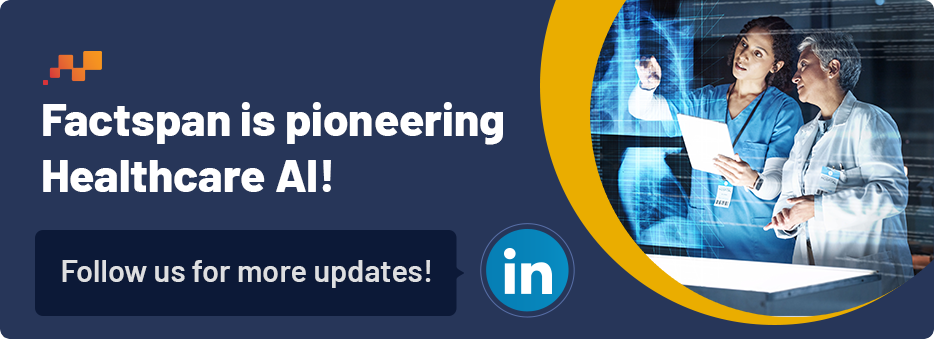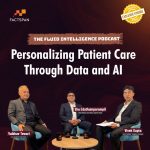A Ray of Hope in Rural Rajasthan
In a small village nestled in the arid landscapes of Rajasthan, lived Meena, a spirited 28-year-old teacher. She had been experiencing unexplained fatigue and shortness of breath for several months. The local clinic, with its limited resources, couldn’t pinpoint the exact cause. Traveling to a city hospital was an expensive and time-consuming option that Meena couldn’t easily afford.

One fine day, she got the news that an NGO introduced the village to a mobile health van equipped with state-of-the-art AI diagnostic tools. Designed to reach rural areas where medical facilities were scarce, this van was Meena’s best shot at understanding her ailment.
With a simple blood test, the AI-powered system quickly analyzed her samples. Comparing her data with thousands of similar cases from across India, the system identified her condition: a rare blood disorder, treatable if caught early.
Thanks to the early diagnosis, Meena received timely treatment. Now, she often says, in a place where even basic healthcare seemed like a luxury, technology bridged the gap. They called the new ‘AI system’, a guardian angel watching over them.
Stories like Meena’s underscore the transformative power of AI in healthcare, especially in regions where traditional medical infrastructure struggles to reach.
Elevating Healthcare with AI

The rapid advancement of artificial intelligence (AI) has profoundly impacted various sectors, with healthcare standing out as one of its most prominent beneficiaries. From initial skepticism to widespread acceptance, AI now takes a leading role in medical innovation, promising a future where diagnostics, treatments, and patient care become more personalized, efficient, and effective. This transformation is a hallmark of the 21st century, where the convergence of AI and healthcare marks the onset of a new era. In this era, medical professionals and intelligent machines collaborate to enhance patient outcomes and revolutionize the field.
At Cypher 2023, Asia’s foremost AI Summit, Vaibhav Tewari delivered an inspiring presentation, illuminating the vast horizons that AI is opening up within healthcare. From unraveling intricate genetic patterns to predicting health anomalies even before they manifest, AI steadily solidifies its position as the backbone of modern healthcare. The dawn of the 21st century has witnessed remarkable technological breakthroughs, but none as transformative as artificial intelligence. Its integration into healthcare exemplifies the synergy of human expertise and machine intelligence, propelling the field into a future where patient well-being is paramount, and the possibilities are boundless.
The Deep Roots of AI in Healthcare
While many perceive AI’s integration into healthcare as a recent phenomenon, the roots can be traced back to the 1960s with ELIZA, an early natural language processing computer program, and Dendral, which was used for molecular structure interpretation. The initial resistance to AI in healthcare arose from concerns about data security, misdiagnosis, and the potential for machines to replace human jobs. However, as AI analytics became more sophisticated and reliable, their utility became evident, thus gaining more acceptance.
Recent Breakthroughs:
The year 2023 marks significant innovations in AI for healthcare:
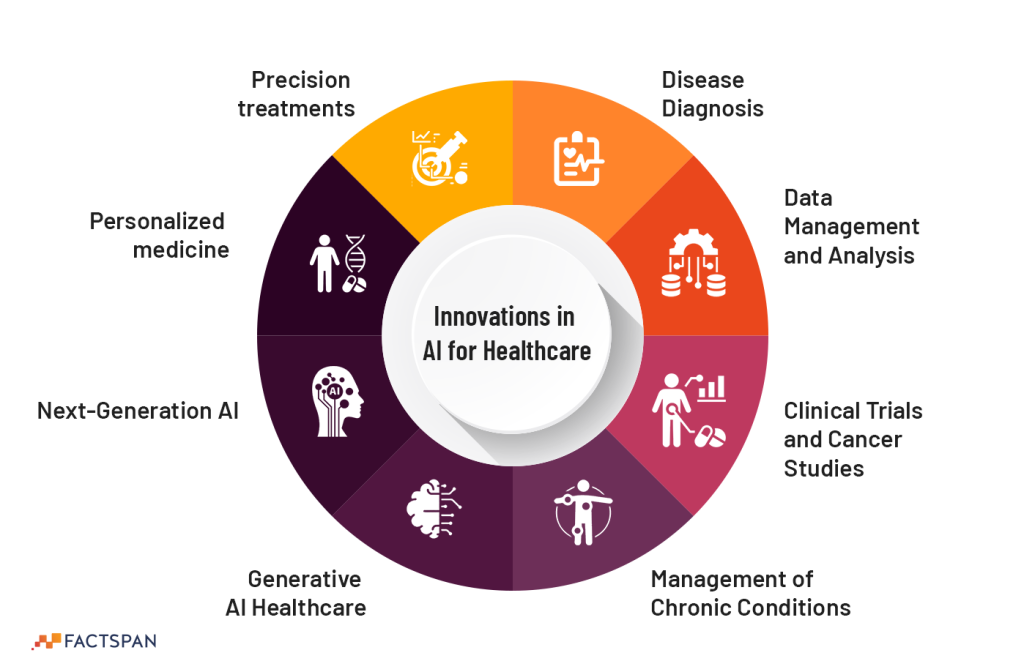
Disease Diagnosis: AI and Machine Learning (ML) are playing a crucial role in diagnosing diseases, notably by analyzing vast amounts of medical data to identify patterns and detect diseases at an early stage. This has particularly shown promise in revolutionizing healthcare in 2023, potentially saving countless lives by enabling early interventions.
Source: Atonce
Data Management and Analysis: The application of ML and Natural Language Processing (NLP) in healthcare facilitates the management, structuring, and analysis of both structured and unstructured data, which constitutes a significant portion of healthcare data. For instance, services like Amazon HealthLake are enabling the searching and querying of unstructured data, thus unlocking valuable insights from previously underutilized data.
Source: Health Tech Magazine
Clinical Trials and Cancer Studies: AI, especially NLP, has been utilized to sift through extensive clinical record data to match patients with appropriate clinical cancer studies swiftly. This is exemplified by the Fred Hutchinson Cancer Center in Seattle, which employed NLP to review medical charts at a scale, aiding in identifying suitable candidates for clinical trials.
Source: Health Tech Magazine
Management of Chronic Conditions: AI is assisting in the management of chronic conditions such as kidney disease by predicting disease trajectories and aiding in timely intervention. It helps in assessing images from radiology or histopathology, and other medical disciplines are also leveraging AI and ML to improve patient diagnosis and management.
Source: Health Tech Magazine
Generative AI: The explosion of generative AI in healthcare has been propelled by the exponential growth of medical data and a shortage of healthcare providers. This has been largely due to advancements in technology, which have paved the way for better data handling and analysis, thus improving healthcare delivery.
Source: Forbes
Next-Generation AI: The evolution of AI is set to revolutionize healthcare by empowering clinicians to focus on personalized patient connections, which in turn, enhances human interaction in medicine, reduces costs, and alleviates administrative and cognitive burdens that healthcare providers face.
Source: Microsoft
Various Medical Breakthroughs: In 2023, AI in diagnosis, personalized medicine, and precision cancer treatments are among the medical breakthroughs alongside other advancements like gene editing, immunotherapy, nanotechnology, regenerative medicine, and more.
Source: Healthynbetter & Docquity
Case Studies: AI in Action
Several institutions and tech giants are pioneering AI’s integration into healthcare:
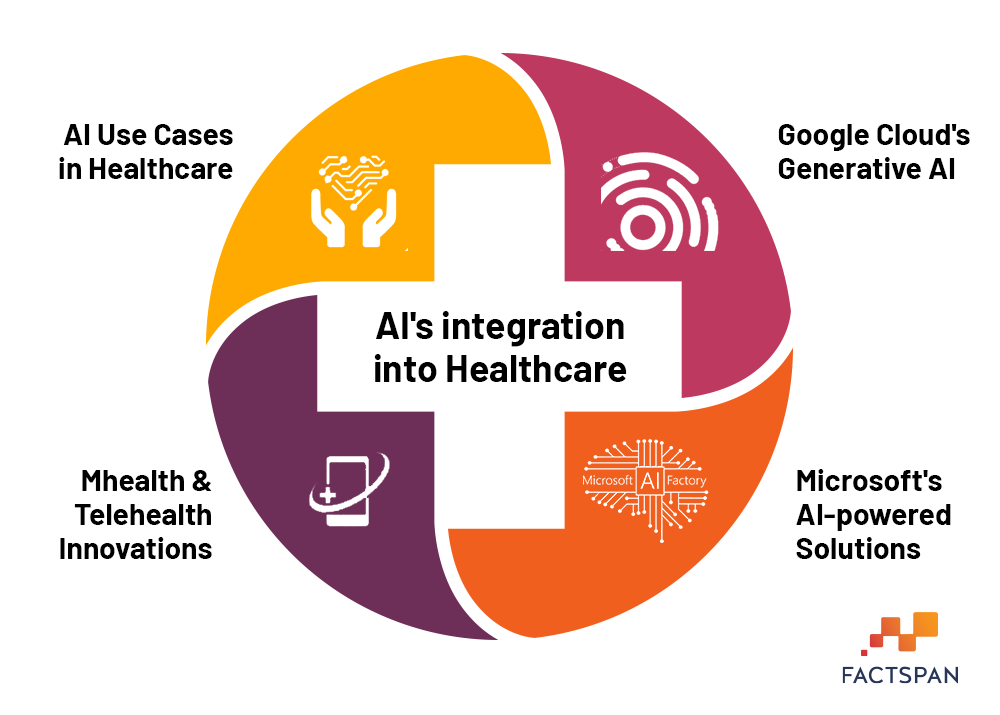
Google Cloud’s Generative AI: Google Cloud has launched new generative AI capabilities aimed at making healthcare delivery more intuitive, efficient, and human-centric. Through its initiative, care.ai, Google Cloud is helping healthcare providers offer enhanced services to their patients.
Source: Forbes
Handpicked Content
Explore the journey of a leading U.S. hospital chain as they use GenAI to transform radiology reporting and elevate patient care to new heights.

Microsoft’s AI-powered Solutions: Microsoft has introduced AI-powered solutions to assist U.S. health systems in delivering quality, personalized care. These solutions are aimed at alleviating administrative burdens and clinician burnout, which has reportedly increased from 42% in 2018 to 53% among physicians in 2023 according to a Medscape survey.
Source: Microsoft
Mhealth and Telehealth Innovations: In 2023, Mobile Health (Mhealth) and Telehealth are rapidly gaining momentum, leveraging AI to offer patients remote access to healthcare services. These technologies are transforming the way healthcare services are delivered, making them more accessible and convenient for patients.
Source: aciinfotech
AI Use Cases in Healthcare: Various AI use cases have emerged in the healthcare industry, indicating the growing interest and application of AI in this field. Although the details of specific use cases were not accessible due to a restriction on the webpage, it’s evident that AI’s application in healthcare continues to expand, with numerous current AI applications and more use cases expected to emerge in the future.
Source: aimultiple
Handpicked Content
A U.S. healthcare institution uses data-driven insights to optimize patient flow , elevate care delivery and improve staff planning in Emergency Departments.

Ethical Concerns: Treading with Caution
While AI offers numerous benefits, it’s essential to address its ethical implications:
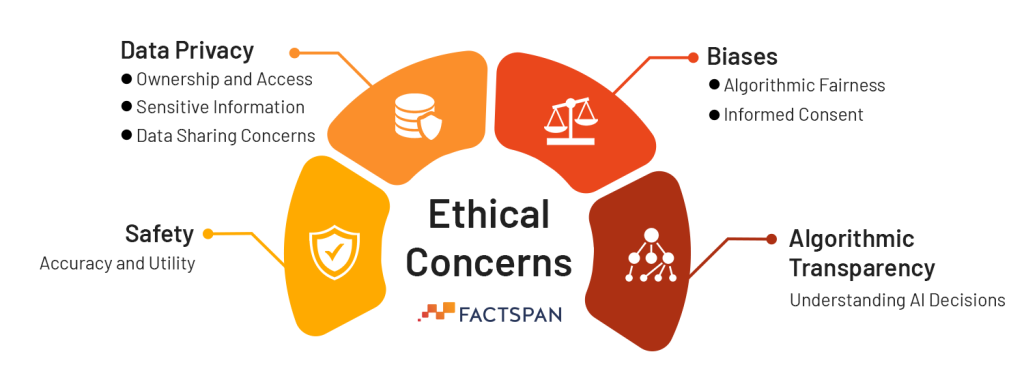
Data Privacy:
Ownership and Access: One of the primary concerns is determining who owns, has access to, shares, and monitors patient data. Clear data regulations are essential to ensure privacy is protected.
Source: Sciencedirect
Sensitive Information: The distinction between personal data and sensitive information is becoming increasingly blurred as AI in healthcare can infer health information from behavior patterns and other non-sensitive data. The deployment of algorithms necessitates clear regulations to address privacy challenges.
Source: Springer
Data Sharing Concerns: Patients have expressed concerns regarding data-sharing between large health systems and AI developers, leading to lawsuits. This highlights the need for transparent data-sharing agreements and informed consent from patients.
Source: Brookings
Biases:
Algorithmic Fairness: AI algorithms can inadvertently perpetuate or even exacerbate socio-economic, racial, and gender biases, especially if the data used to train these algorithms is biased.
Source: usfhealthonline
Informed Consent: Ensuring patients are adequately informed and consent to the use of AI in their healthcare is crucial. This includes understanding any inherent biases in the AI systems used for their care.
Source: ncbi.nlm
Algorithmic Transparency:
Understanding AI Decisions: Transparency in how AI systems make decisions is crucial to address ethical concerns. Patients and healthcare providers should have a clear understanding of how AI is being used, the decisions being made by AI systems, and the implications of these decisions.
Source: ncbi.nlm
Safety:
Accuracy and Utility: Ensuring the accuracy and clinical utility of AI systems is vital to prevent misdiagnoses and ensure effective treatment. Physicians must evaluate the clinical utility and accuracy of AI systems in practice.
Source: Sciencedirect
Looking Ahead: The Future of AI in Healthcare
The healthcare landscape is undergoing a seismic shift with the advent of AI. From early detection of diseases to personalized patient care, the possibilities are boundless. As with any technological advancement, it’s crucial to tread with caution, ensuring that the benefits of AI are reaped while addressing its ethical implications.
The integration of AI and healthcare analytics with other technologies like IoT, wearables, and telemedicine promises a future where patient care is revolutionized. To fully unlock AI’s potential, it is crucial to foster collaboration among AI experts, healthcare providers, and policymakers. Addressing challenges like data privacy, potential biases, and ensuring interdisciplinary collaboration will pave the way for a healthcare system that’s efficient, ethical, and patient-centric.
